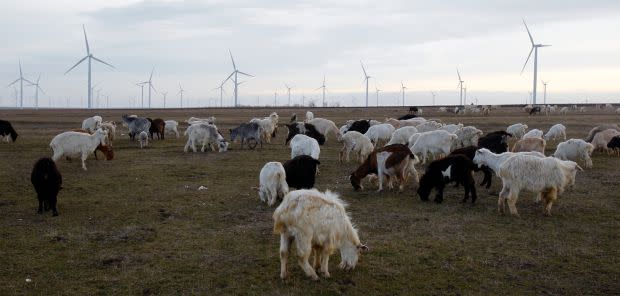Europe plans to accelerate its clean energy plans because of the Ukraine invasion

The European Union Commission will ask its member countries to reduce their consumption of natural gas from Russia by two-thirds this year and eliminate it completely before 2030, according to a March 8 energy strategy document.
The strategy, which contains a mix of policy suggestions and binding legislative proposals, calls for replacing one-third of Russian gas this year with imports from other destinations (primarily Saudi Arabia and other Organization of Petroleum Exporting Countries members). Wind and solar development, as well as energy efficiency projects for buildings and factories, would be fast-tracked by lowering bureaucratic hurdles.
The Commission document, parts of which may be voted on by European lawmakers by July marks a fundamental shift in how the bloc approaches energy, said Matthias Buck, Europe director at Agora Energiewende, a German think tank. It frames energy as a security priority, accelerating aggressive climate targets proposed as recently as last week by the International Energy Agency. “Following the invasion of Ukraine by Russia,” the strategy states, “the case for a rapid clean energy transition has never been stronger and clearer.”
Previously European policymakers tended to think of energy security in strictly technical terms: miles of pipelines or transmission grid lines needed to keep the lights on and meet long-term decarbonization targets. “This has changed enormously in the last ten days,” Buck said. “Now it’s about energy sovereignty. It’s a completely different mindset. If we are to control our own future on energy and climate, we need to be able to steer the supply of energy we need, and to produce predominantly at home. Not to be dependent on crazy people taking crazy choices somewhere else.”
Taxes on windfall profits could offset high energy costs for households
Cutting out Russian gas won’t be cheap for European businesses and households. On March 7, Germany’s chancellor made clear that Germany, for one, can’t afford to abandon Russian gas in the immediate term. Already, global gas markets are pricing in the likelihood of a cutoff in Russian exports, which supply 45% of the EU’s gas needs; gas prices in Europe hit a record high on March 7.
That may be a headache for energy consumers, but it’s likely to mean windfall profits for gas companies like Shell and Equinor. In the near term, Europe’s gas demand is likely to surge, as energy distributors scramble to refill depleted gas reservoirs ahead of next winter. The strategy proposes a legally-binding requirement on all of the bloc’s storage facilities to be at least 90% full by October, up from about 30% now. The strategy also recommends that EU countries levy higher taxes on energy companies that benefit from the current market turmoil, and use that revenue to subsidize energy bills for consumers. Given how high gas prices are likely to remain, that strategy could free up €200 billion by the end of 2022, the strategy says.
The strategy, and the high price environment, will also push European gas producers and distributors to invest in new drilling and export infrastructure. Days after the invasion, Germany announced plans to build two new liquefied natural gas import terminals. And the soaring price for nickel and other industrial metals for which Russia is a top exporter will raise construction costs for renewables. But renewables will still be cheaper than building new gas-fired power plants in almost every case, Buck said—so ultimately the biggest winner from this strategy is still likely to be the climate.
Sign up for the Quartz Daily Brief, our free daily newsletter with the world’s most important and interesting news.
More stories from Quartz:




